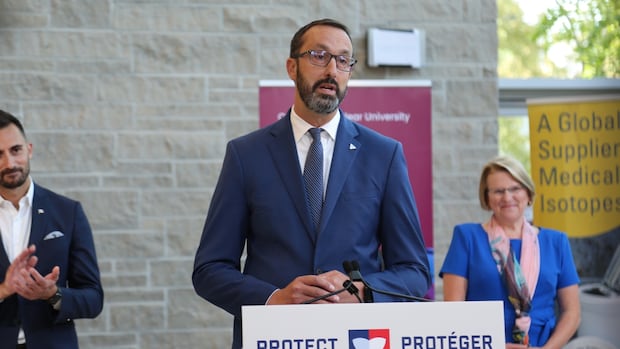McMaster University is planning on hiring up to 16 people as it expands the capacity of its nuclear reactor facility to produce medical isotopes — a key technology in the treatment of certain kinds of cancer.
The facility is the largest nuclear research reactor in the country and has been producing medical isotopes, primarily iodine-125, to treat cancer patients around the world since 1959.
This expansion will further cement the facility as one of the leading producers of medical isotopes in the world.
The new hires will help expand the operating times of the reactor to seven days a week, 24 hours a day, up from five days a week. The transition to 24/7 should come within the next 18 to 24 months, according to Karin Stephenson, McMaster’s director of nuclear research and education support.
The money for the new hires is part of the $18 million in provincial funding for the facility, announced over the last two and a half years.
John Preston, acting associate vice-president of nuclear research at McMaster, said his team is working to streamline the process of preparing new staff.
“We’ve been able to shorten the time between [reactor operators] getting fully licensed from a little bit over two years to closer to 14 months,” Preston said Monday, as Ontario government officials visited the campus.
Province aims to double production by 2030
The interest in McMaster University’s research reactor comes from a high demand of medical isotopes as Canada saw a rise in cancer diagnoses to nearly 250,000 in 2024, as well as the provincial government’s goal to double medical isotope production by 2030. Medical isotopes are then sold both in Canada and internationally.
McMaster also aims to accelerate nuclear research and has taken a step in doing so by offering part-time contracts to some of its summer students who worked at the research reactor.
“This investment will expand the reactor’s research capacity by 300 per cent and produce isotopes for 84,000 treatments every single year,” said Colleges and Universities Minister Nolan Quinn at a press conference at McMaster University on Monday.
McMaster says that its nuclear reactor produces enough medical isotopes to treat over 70,000 cancer patients every year.
The expansion allows McMaster’s student researchers, doctoral graduates and faculty staff to study isotopes which can help identify new drugs and medicine that could cure other serious illnesses.







